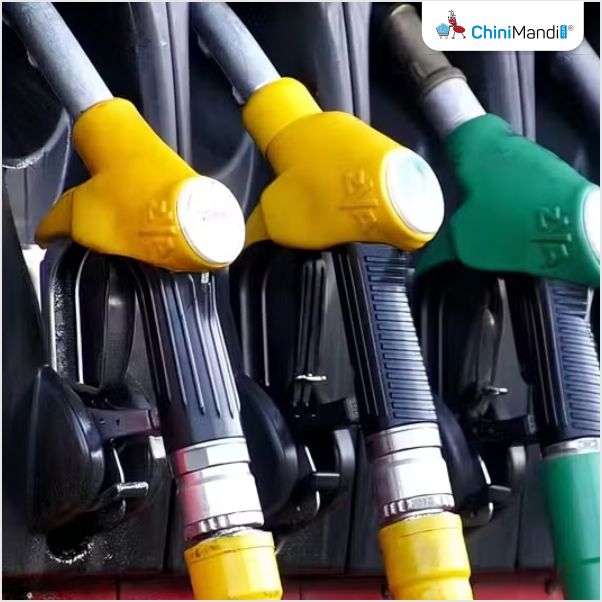The Grain Ethanol Manufacturer’s Association (GEMA), the apex body representing India’s growing ethanol production sector, has urged the government to accelerate the rollout of higher ethanol blend and to fast-track the nationwide adoption of flex-fuel vehicles (FFVs). It will also align India’s biofuel strategy with global best practices, reduce dependency on fossil fuels, and support the country’s ambitious net-zero emissions goal by 2070.
Following the successful implementation of the Ethanol Blended Petrol (EBP) program and the achievement of the 20% ethanol blending target set for 2025, GEMA maintains that India must aim for higher blends, to follow successful Brazil’s pattern of progressive ethanol blending levels with base petrol at E27 and reaching up to 55% of petrol replacement by adopting Flexi Fuel Vehicles. The association emphasises that introducing flex-fuel engines capable of running on different ethanol-petrol blends is critical for the widespread adoption of biofuels and decarbonisation of the transport sector. However, according to the association, enhancement in blending in range of 25-30% may not be possible immediately, but there is a definite possibility to enhance the blending up to the tolerance level of existing vehicle, which may be 1 or 2 percent over 20%.
Dr. CK Jain, President, Grain Ethanol Manufacturer’s Association urged that there is an immediate need to enhance the blending up to the tolerance level of the existing vehicles to give some relief to the Grain Ethanol Industry. The roadmap for ethanol blending beyond 20% must be clear, ambitious, and supported by a forward-looking policy framework”
“The industry has already invested to cater the enhanced requirements and ready to collaborate with stakeholders for enhance distribution infrastructure. However, timely government policies and cohesive inter-ministerial coordination will be essential to maintain the momentum,” he further added.
GEMA also emphasized that higher ethanol blends can significantly cut carbon emissions compared to conventional petrol, helping India achieve its 2030 climate targets more effectively. Beyond environmental benefits, increased blending could lower India’s oil import bill, enhance energy security, boost rural economic and employment growth by creating demand for key agricultural feedstocks such as sugarcane, maize, and surplus rice.
Flex-fuel readiness calls for developing appropriate vehicle standards, upgrading fuelling infrastructure, and consumer awareness campaigns. With flex-fuel engines, India can leverage its increasing ethanol supply to significantly cut vehicular emissions while maintaining vehicle performance and fuel economy.
The adoption of flex-fuel vehicles (FFVs) could be a game-changer for biofuel integration. The association urged faster collaboration between policymakers, the Department of Science and Technology, automobile manufacturers. Recognizing the challenges in scaling both ethanol distribution and vehicle readiness, GEMA stressed the need for multi-stakeholder coordination. “A cohesive approach involving relevant ministries and all stakeholders is essential to build a sustainable and economically viable biofuel ecosystem,” added Mr. Abhinav Singal, Treasurer, GEMA.
Ethanol blending and flex-fuel vehicle technology represent essential pillars in India’s journey to achieving net-zero carbon emissions by 2070. By cutting down emissions from conventional petrol vehicles, India can reduce greenhouse gases, improve air quality, and create green jobs across rural and industrial sectors.
GEMA remains committed to supporting the government and industry partners in accelerating India’s ethanol roadmap, facilitating the introduction of higher blends, and enabling widespread adoption of flex-fuel vehicles. The association reiterates its call for urgent policy clarity, investment in infrastructure, and public-private partnerships to secure India’s energy future — clean, sustainable, and self-reliant.


















There are many pending important questions that need answer today.
1. what is the calorific value of ethanol.
2. what is the environmental / carbon/ energy footprint of ethanol feedstock stock crops.
3. What is the environmental / carbon/;energy footprint of a distillery industry per 1 KL of fuel grade ethanol.
4.The present average procurement price of fuel grade ethanol by petroleum companies without tax.
Often ,in trying to find less harmful substitutes we unwittingly discover new that later turn out worse. example : phosphate substitutes in detergent formulations namely NTA and sodium meta silicate -:got push with fanfare, but later withdrawn because of adverse environmental & user effects
Ethanol combustion producing aldehydes & toxic substances needs consideration when promoting it’s usage